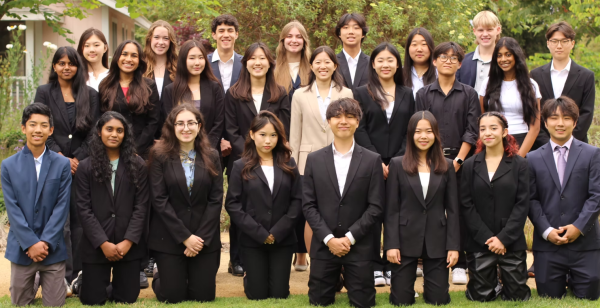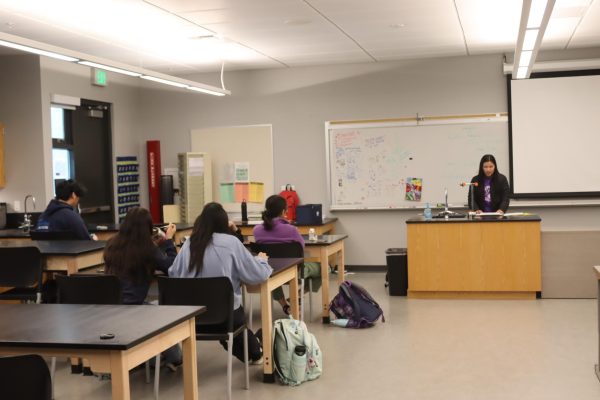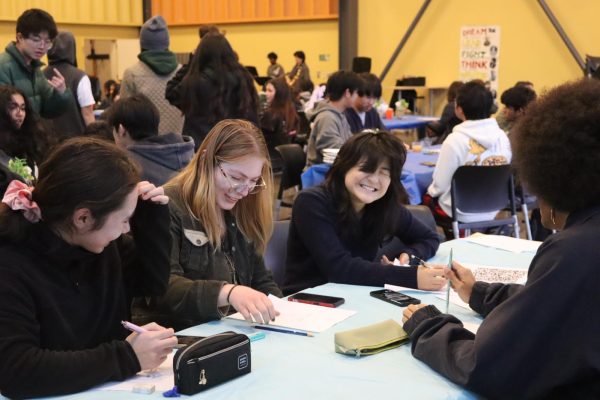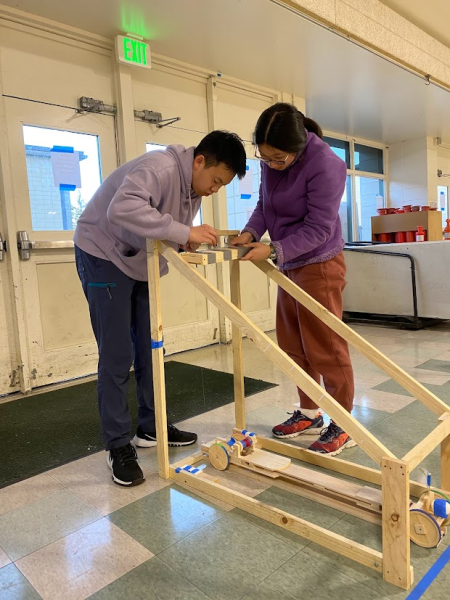New normal
Over the years, what people consider a “normal” family has changed
Family. They have been there since day one. They are the people who support you when you go through hardships and celebrate your accomplishments with you. Today, the definition of family has shifted from simply meaning people who share your DNA.
Adoption
Adoption gives people an opportunity to be a parent or to have a family when other methods aren’t working, English teacher Natalie Owsley, who was adopted when she was an infant, said. It not only opens many doors for the child, but gives them a chance at a better life.
“I think adoption is great,” Owsley said. “It provides opportunities for people to have children when they cannot conceive on their own, and it provides a place for children who need homes.”
Adoption is something people hear about more often today. According to HC Kids, increasing adoption numbers is a national trend. Celebrities such as Sandra Bullock, Madonna and Angelina Jolie have adopted children.
“Things are definitely different [than they used to be],” junior Amy McElheny said. “I used to not tell anyone I was adopted but I feel more confident about it now because it makes me different.”
According to New York Times reporter Esther Fein, there has always been a stigma and secrecy surrounding adoption. Many states, including California, have laws requiring the records of the adoption to be sealed, and a new birth certificate created, listing adoptive parents on the certificate. While this law is changing in many states, it remains firm in California.
“Adopted people are less ‘secretive’ because it’s [become] more widely accepted — not only by our peers, but also because celebrities are adopting children now too,” McElheny said. “People are influenced by celebrities and when they see [them] adopting children, it becomes more accepted.”
A study done by the Search Institute found that 65 percent of adopted American adolescents wanted to meet their birth parents. This is not something they were able to do in the past because of the secrecy surrounding adoption.
Owsley said she was also curious about her adoption and wanted to find her biological family because she felt a connection to them.
“I spent 20 years looking for my biological family and I — at one point in my 20s — paid a private investigator to try to find them. I did pretty much everything you could possibly do,” Owsley said. “In 2015, I took a DNA test on 23andMe. I connected with a second cousin on my birth mom’s side, and then he connected me with my birth mom.”
Owsley said her experience meeting her birth mom was positive and she still has a close relationship with her today.
“I would highly encourage adoptees — if they’re interested in learning more about who they are as a person — to do a DNA test because there’s probably someone else out there that they can connect with that they’re related to,” Owsley said.
Immigration
Moving can be scary, especially when you are moving to an entirely new country. Everything is different: the culture, the schools and sometimes the language. Many families immigrate to the U.S. for different reasons.
The amount of people immigrating to the United states grows every year. According to the MIP, there were 44.7 million immigrants living in the U.S. in 2018. Many of these people immigrated here because of job and education opportunities.
Junior Mariamna Gyrgyshmikovia moved from Russia to the United states in 2019. Going to a new school can be hard enough, but it was especially hard for Gyrgyshmikovia because, she said, she couldn’t understand the language.
“[The] movies about America [are] interesting, so I expected that,” Gyrgyshmikovia said. “But, when I came to school, it was horrible because I didn’t speak English at all. It was really hard for me to understand what I needed to do, [how to] express my feelings and thoughts and even explain that I can’t speak English.”
The first year living in a new country was hard, but Gyrgyhmikovia said she was able to get through it and learn how to become more independent over time.
“Over the year I lived here, I wanted to scream how hard it was, and I wanted to move back because almost no one understood me,” Gyrgyshmikovia said. “Now, I’m fine with that. I’m learning how to be alone, and how to deal with my problems by myself.”
Amber is currently a Senior at Homestead and this is her fourth year on the Epitaph. She is excited to be the Senior Arts & Culture editor this year....











